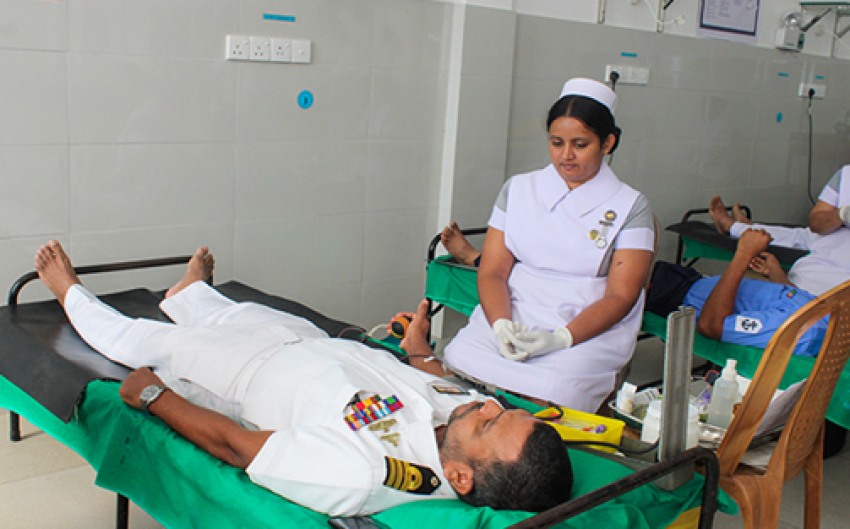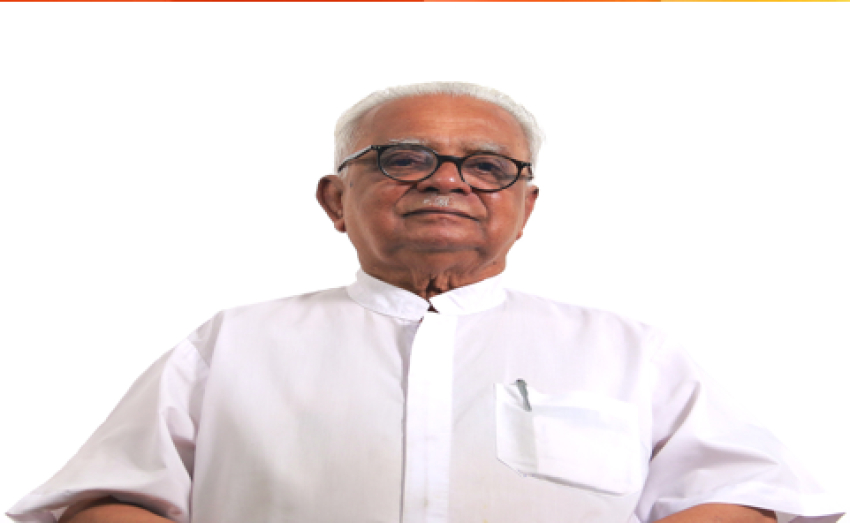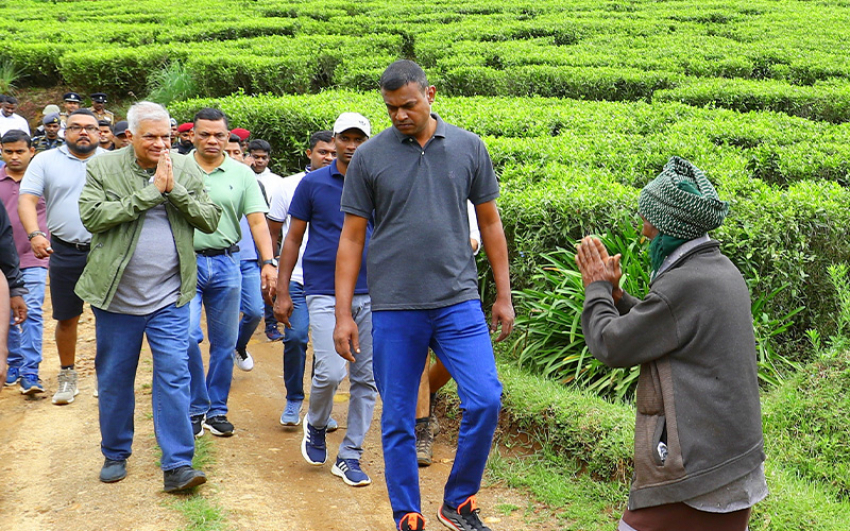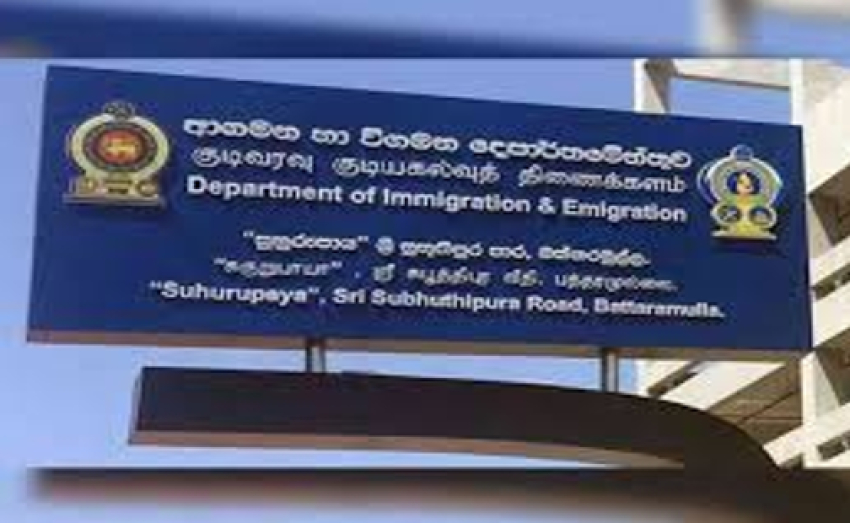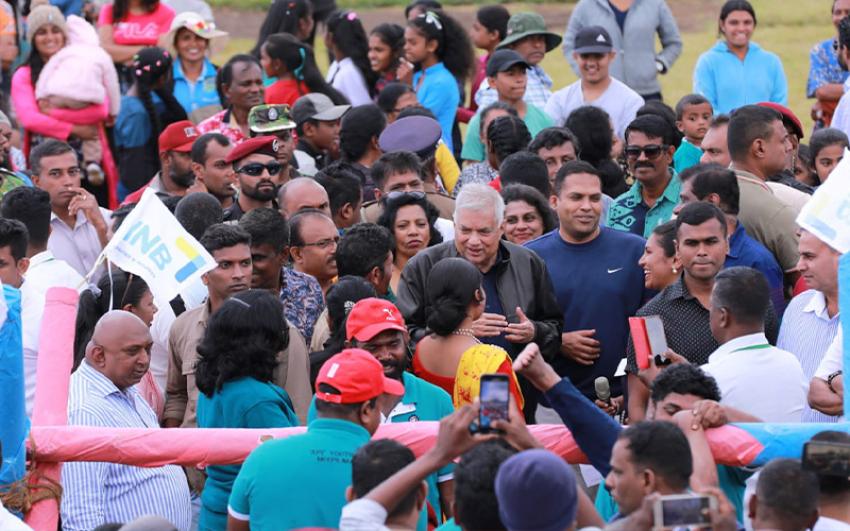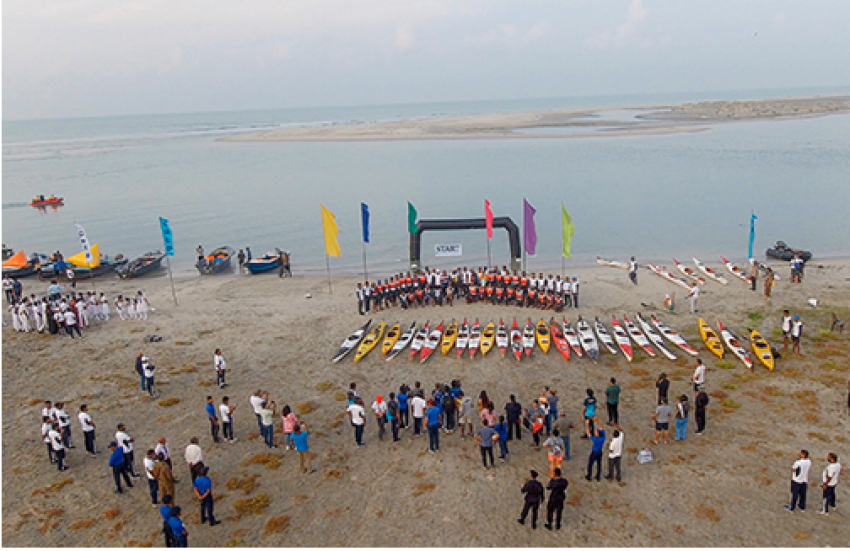At a recent event entitled ‘Global Health Outlook: Challenges and Implications for Sri Lanka’ hosted by the Bandaranaike Centre for International Studies (BCIS) the speakers in attendance explored the linkages between health and global politics, highlighting the extent to which addressing the health issues plaguing Sri Lanka requires diplomacy and international cooperation to deal with forces that extend beyond the confines of national borders.
Health Ministry Director - International Health Dr. Alan Ludowyke noted in the opening remarks that ‘Health is now widely recognized by foreign policymakers as one of the key transborder issues requiring more effective and collective action. We have to initiate a new era in establishing relationships and understandings with all the other stakeholders involved.’It was within this context that discussions were held regarding the extent to which Sri Lanka’s health issues, their origins and the approaches to dealing with them, fit into the global health landscape as a whole.
Global health challenges
Chair Professor of Medicine at the University of Colombo Saroj Jayasinghe delivered a presentation on the issues impacting global health, exploring the intersections of corporate influence, trade agreements and the health outcomes of populations.Prof. Jayasinghe identified four main axes across which we can conceptualise the challenges facing global health. Firstly, the changes in the world which impact global health, for example climate change or global food prices. Secondly, the global health issues themselves, whether they be individual illnesses or patterns that challenge healthcare providers, for instance, dengue or an aging population. Thirdly, the evolution of health governance, for example the changing role of the World Health Organisation or corporate influence on policy. Finally, the area of healthcare provisions, research and innovation. Each of these dimensions play a role in the way particular health issues manifest and as such the way they interact must be considered when designing solutions to them.
He used the example of diabetes to show how health challenges manifest in each of these domains."If you take across, for example a non-communicable disease like diabetes, you’ll see how they link up because the changes which are impacting global health, the nutritional changes, sugary drinks, how the market access is being gained by multinationals, they are leading to an epidemic in diabetes. Not only that, when you are talking of changes in the actors who are funding it, who are funding research, who are funding services, that’s also changing. The provision of care, again there are a lot of changes because there are private sector models, even in Sri Lanka, now you have certain hospitals which are providing comprehensive care for diabetes.” Jayasinghe also noted that certain pharmaceutical companies involved in the production of insulin were now running community-based programmes for the treatment of diabetes, highlighting the extent to which there has been a paradigm shift with regard to the provision of care.
Prof. Jayasinghe highlighted the need for a structural analysis with regard to diseases such as diabetes and obesity, not just focussing on the individual consumption habits that lead to their prevalence but the forces that influence these consumption habits in the first place. For instance, he drew attention to the influence of corporate strategies where there are surprising linkages between industries, referencing a British medical journal article which noted that, “The tobacco industry’s strategies are being used now, according to their internal memos, by the sugar drinks industry.” The strategies involved in this case refers to a set of scientifically informed approaches that both the tobacco and sugar drinks industry use to market their products to children. This is just one of several policies used by the sugar drinks industry as highlighted by Prof. Jayasinghe.
“The information on labels are in English, so that people who can’t read in English wouldn’t know and even if you can it is in very small print, and even if you read the print it is in joules when we’re used to calories. They make it a point that you won’t get this information.” In order to counteract such strategies, Prof. Jayasinghe emphasised the importance of policies that allow us to foster increased awareness of the dangers of certain products, as well as policies that create constraints on the purchase of such products, in the service of better health outcomes.
“If you travel around this region, our Ministry of Health is miles ahead (with regard to health regulations) of what’s happening in most countries. They have brought in tobacco control, alcohol control. Even now about the sugar tax, all of these are really important. They might not have an immediate effect but the moment we have the labels people start becoming conscious of it, behaviour might not change now, but it might change in the next generation.”
Despite highlighting areas for optimism with regard to Sri Lanka’s health policies, he also noted that considerations of domestic policy were not enough to address the health challenges we face as a country integrated into the world economy. Prof. Jayasinghe gave the example of Samoa to highlight the extent to which a country’s ability to deal with a health issue is constrained by international agreements beyond the scope of domestic policies. He noted, “Samoa has one of the highest rates of NCD’s, with diabetes prevalence 20% among adults and obesity 53% among men 77% among women. They found that turkey tails which were cheap were being exported from the States in huge amounts. They did studies and found that this was the main factor and so Samoa banned the imports of turkey tails. However very soon, they had to lift the ban as a condition of joining the WTO. So that’s how things work.”
In light of such concerns, Prof. Jayasinghe highlighted the necessity of employing experts who focus on the various health implications of any project or international agreement, allowing us to give due prominence to health considerations when making decisions on such matters.Prof. Jayasinghe noted, “The priority is that we should improve the awareness of the health implications of global policies. When people go for negotiations overseas on trade, on development, on investment, highways or whatever, there is a health implication. We don’t have a good mechanism to identify them. Things are changing at such a rate that it’s important that we have a pool of people who are able to look at the fine print in some of these policies and investments which come into the country. We don’t have a proper health impact assessment.”
The dynamics of Global Mental Health
Another area in which health issues and approaches to dealing with them are influenced by transborder forces, is in the area of mental health. Senior Lecturer in Psychiatry at the University of Colombo Medical Faculty, Dr. Mahesh Rajasuriya spoke on this topic; specifically, with regard to misconceptions within the public discourse regarding mental health, as well as the influence of various actors in shaping both this public discourse and the wider policy agenda for their own benefit.
Firstly, Dr. Rajasuriya argued that there is a misconception about the role of psychiatrists in the discourse surrounding mental health, arguing that achieving a mentally healthy society required more than the mere curing of mental illnesses. “There is a growing tendency to make psychiatrists increasingly powerful, as the owners of mental health.” He continued, “Psychiatry and mental health are not synonyms. We can cater to a small group of the population who have mental illnesses, which have been studied for years and we know what to do. Mental health is not just about mental illnesses. It’s about happiness, human contact. It’s about meaning in life.”
Dr. Rajasuriya further noted that the thinking of psychiatrists has become increasingly shaped by an unnuanced vocabulary, which centres prescription as the locus around which their thinking about mental health revolves.“Our thinking has been hijacked. How? By changing the mental health and psychiatric lexicon. I noticed many years ago that when a patient comes and sits in front of me and starts to talk, in the second minute, I start thinking ‘imipramine’, ‘mirtazapine’, ‘olanzapine’. Our thinking has been controlled by this lexicon. Our medications are given funny names, anti-psychotics, anti-dementia drugs, anti-depressants. One medication cannot cure a disease. There are no anti-dementia drugs, there are only medications that make certain aspects of dementia more tolerable. Our thinking has been narrowed down without our knowledge, our training has not advanced it has regressed. We are programmed to think on these lines.”
Dr. Rajasuriya pointed out that even with regard to research into the efficacy of certain drugs, corporate interests have manipulated the process. “Evidence based medicine is wonderful, but evidence generation has been hijacked by powerful industries and their interference in policy making.” The kind of influence on evidence generation that Dr. Rajasuriya speaks about can be seen in a 2017 review conducted by the Cochrane Database of Systematic Reviews, a key resource in summarising and interpreting medical research, which found that ‘Sponsorship of drug and device studies by the manufacturing company leads to more favourable efficacy results and conclusions than sponsorship by other sources.’ Furthermore, Dr. Rajasuriya argued that an overly simplistic narrative of the causes of mental illness was being propagated in public discussions, namely the narrative that mental illnesses were purely a result of chemical imbalances in the brain. On his account, due prominence must also be given to the social and psychological factors that together with physical considerations come to constitute the bio-psycho-social model of mental illness, the standard model by which mental illness are approached in the psychiatric discipline. As such, Dr. Rajasuriya was quick to downplay the idea that mental health could be achieved simply through the taking of medication.
“Studies have shown that cognitive behavioural therapy can be just as effective as anti-depressants. If it is only chemical how can that be the case? This chemical aspect is also important, but it is not the only thing,” Dr. Rajasuriya said.
He also argued that corporate influence is visible even with regard to international organisations such as the WHO, highlighting the extent to which the very terms which we use to explore health problems are stacked in favour of multi-national corporations who stand to benefit from the sale of harmful products. “I’d like to highlight the track that the WHO has gotten into by using the term ‘harmful use of alcohol’, which is considered a disorder. But we know that many of the negative impacts of alcohol is not due to a few people harmfully using alcohol. Many people just after a party drunk drive and might kill someone. That person most likely doesn’t have an alcohol use disorder, it’s just a use of alcohol, it should be ‘harm due to use of alcohol’. This policy lexicon has been hijacked so nicely, now they’re talking about preventing ‘harmful use of alcohol’. (As if to say) ‘That’s another kind of alcohol use, so don’t worry about the alcohol industry selling alcohol to young people, only these ‘diseased’ people whom psychiatrists will manage, have the problem.’ We should actually be talking about per capita use of alcohol, that is the thing that is linked to accidents, cirrhosis, social harm, psychological harm, not just the harmful use of alcohol. The moment per capita alcohol consumption goes down, everything goes down.”
Though Dr. Rajasuriya identified several key challenges regarding the dynamics of global mental health, he also highlighted the progress made in terms of mental healthcare provision in Sri Lanka, with a susbstantial increase in the number of practitioners apparent in the last 15 years.“Psychiatric services were very sparse not so long ago, around 2004-2005 but by now we have psychiatrists who cover every district, we had only 20 or 30 at the year 2000 and now we have 70 plus, with many awaiting registration very soon.”
Health innovations in a Digital Era
In recent years, information and communication technologies have come to play a significant role with regard to almost all areas of human activity. The digital revolution has transformed the way we share information and deal with global problems. In this context, the use of ICT in our attempts to achieve better health outcomes has assumed greater prominence in health policy across the world.
The topic of ‘Digital Health’ in Sri Lanka was explored by Senior Professor of Anatomy at the University of Colombo Medical Faculty Vajira Dissanayake. Prof. Dissanayake gave an overview of the Ministry of Health’s efforts to bring the benefits of the digital revolution to Sri Lanka’s patients.“Digital health involves the convergence of the digital and genomic revolutions with health, healthcare and the society as a whole. It is expected to empower people to better track, monitor and manage their health so that we will have a more healthy and productive society. To do that, we’ve got to create integrated systems where we are not putting people in hospitals but people are out there but connected to the healthcare ecosystem,” he noted. “This year the classification of digital interventions was published and if you look at the WHO definition of what digital health is all about, you would see that this definition is talking about creating integrated systems, not siloed systems, not individual systems but systems that can talk to each other and can inform our decision making, can inform our policy making and can inform global health regulations.”
One reason that such systems are necessary is due to the changing landscape with regard to the kind of diseases the Sri Lankan population is burdened with. Prof. Dissanayake explains, “We’ve eliminated some of the communicable disorders, but we’ve still got the burden of non-communicable disorders which you can actually not cure. Malaria, you could cure it and you could send the patient home, but diabetes and hypertension you’re not going to cure anybody, you have to look after them for the rest of their life.” He continues “If you take all the people who are diabetic and put them all in hospital then this country would not run. So, we need to build integrated systems using technology where people can be in the community, can be connected with the health system. So that in a catastrophic health emergency situation, that person receives care quickly.”
One programme that has been implemented in Sri Lanka to incorporate the benefits of the digitisation to Sri Lankan healthcare, is a health informatics training programme carried out at the University of Colombo with the support of the Ministry of Health. Prof. Dissanayake pointed out that, “We’re the only country in the world after the US which has a specialist training programme in health informatics, for that we’ve been recognized everywhere.” Health informatics involves the use of IT to manage and use patient information in such a way that the quality and efficiency of health care provision may be increased. As a part of this programme, doctors are given training such that they may in future be able to spearhead the implementation and monitoring of ICT projects within the health sector in Sri Lanka. “Our vision was to develop a generation of leaders in biomedical and health informatics, with the expertise in both the health domain and IT domain, who will develop solutions with the guidance of the decision makers at the highest level. We’ve been successful in doing that. We’ve produced 150 master’s graduates who are now doing these innovations in the healthcare system in Sri Lanka and our numbers are growing, we have 50 more in training.”
Prof. Dissanayake continued, “One of the key components of what we’re doing is frugal innovation. Low cost, highly effective, scalable and sustainable innovation. To do that we have to look at open source, open standards, solutions that meet local needs, custom built, intra operable, Ministry of Health owned and maintained. We’ve built these systems, we’re not actually dependent on any company or any external agencies coming to maintain these systems.” He also pointed out that there have already been a number of innovations within Sri Lanka’s healthcare system as a result of this programme. “There are various systems that we’ve developed within the healthcare system. We’ve got hospital systems that we have developed within. We have to move on to developing the personal health record which is now taking shape. We’ve got master patient identification, which is going to enable the health system to identify individuals in a confidential way so that they can receive care, then of course we’ve got the statistics layer also built. The innovation has happened within the healthcare system.”
One example of the kind of digital system he highlights can be seen in the incorporation of the ‘District Nutrition Management System’, which has been used to help tackle the malnutrition problem facing many children in the country. Prof. Dissanayake explains, “What we did was we built a smart phone app, a web-based system connected with dashboards. This app is local language customised so the midwives can use it freely. A simple device which is used to monitor children. It’s now implemented in several districts. At the moment we have more than 20,000 children being followed up, it’s going to scale up to other places as well.
You can even ask questions from a midwife in your area, where are these malnourished children? You can track which areas these children are clustering and so on.” He continued, “The entire cost of developing the system was only about 1.5 million rupees, entirely done by the Ministry of Health medical officers in health informatics training these people. We have this misconception that people in the field will not be able to use this technology but they can. These devices are designed to be intuitive, the only failures we have are genuine hardware failures in the device.”
Indeed, as Prof. Dissanayake details, the rapid advances made in the field of digital health have already produced encouraging results and the effects of this paradigm shift will become more and more apparent in the coming years, with new cohorts of locally trained health informaticians continuing to find innovative solutions to Sri Lanka’s health problems.



